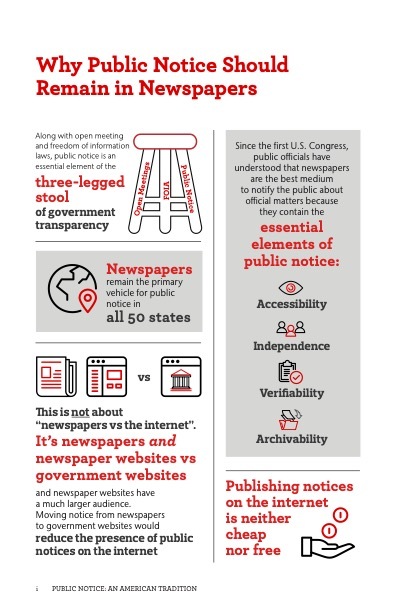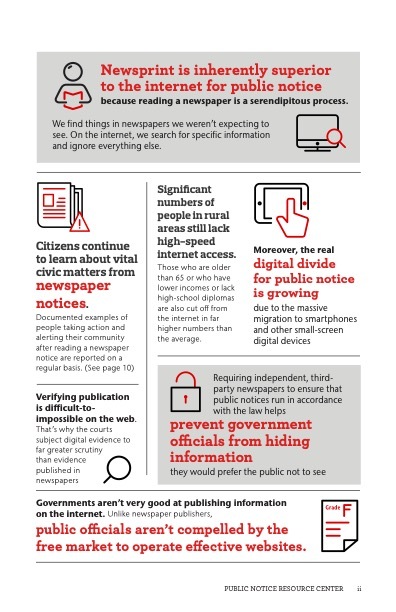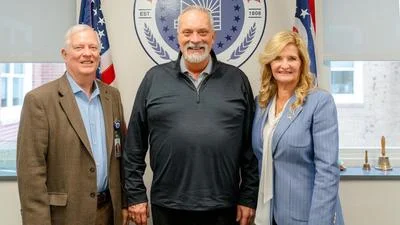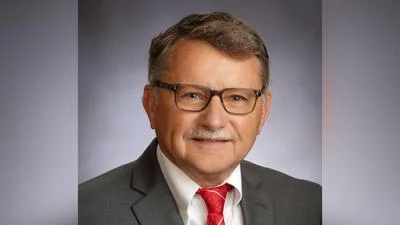The City of Mount Vernon is moving to remove legal advertisements from the Mount Vernon News.
The move comes in the wake of reporting on the city’s move to make Mount Vernon "carbon neutral"
The loss of legal ads will cost the News tens of thousands of dollars in annual revenue.
In the past three months alone the City of Mount Vernon has paid the News $15,200 to publish legal advertisements, which up until recent weeks were required for all municipalities in Ohio.
The Mount Vernon City Council included legislation regarding removing legal ads from the News in its Oct. 23 meeting.
The impending move was noted in the meeting minutes from the Sept. 25 Mount Vernon City Council meeting.
“Law Director Rob Broeren noted that the state has changed the law pertaining to publication of municipal legal notices, and that the City will no longer be required to publish such notices in the community's "newspaper of record." Legislation will be coming to update the City's Codified Ordinances on the matter,” the Mount Vernon City Council’s Sept. 25 minutes read.
However, the move by the Mount Vernon City Council to remove the funding comes after disagreements between Mayor Matthew Starr and the News over an Oct. 4 news article in which the News noted the City of Mount Vernon has signed on to the Mid-Ohio Regional Planning Commission’s “Sustainable 2050” plan to move the city towards "carbon neutrality."
The resolution was proposed by solar energy activists associated with the Mid-Ohio Regional Planning Commission (MORPC), who received federal grants to promote solar panel development in Knox County.
The resolution – approved in 5-2 – aims to replace natural gas and coal with energy from federally funded solar panels and wind turbines, alongside other initiatives like banning natural gas stoves and promoting electric cars.
Other initiatives proposed by MORPC encompasses prohibiting idling cars, eliminating natural gas stoves in residences and transitioning from gasoline-fueled vehicles to electric ones.
This move aligns Mount Vernon with the city of Columbus and Franklin and Delaware County suburbs that have made similar commitments to eliminate their use of so-called "fossil fuels" to generate energy.
Starr addressed the ensuing fervor in Mount Vernon’s Oct. 9 City Council meeting calling the News’ article “one big, fat, bold faced lie.”
“The claims that Mt. Vernon wants to eliminate natural gas absolutely are not true,” Starr said.
“We actually want to make gas at our wastewater treatment plant, clean it, compress it, and sell it or use it. If we only had a gas compressor company nearby, who could help us with that? They might be able to just help us out with that anyway. So we’re looking at that from our 'Sustainable 2050' program.”
The News also printed Starr’s rebuttal in its Oct. 21 edition.
Starr disputed the article, stating it falsely characterized the "Sustainable 2050" resolution, which he said about "idea-sharing" and not actually making the city carbon-neutral, like the MORPC leaders have promised.
The News responded with its own editorial titled “Setting the record straight on ‘Sustainable 2050.’”
“The Mount Vernon News stands by every word of its story dated Oct. 4, Mount Vernon City Council passes resolution promising to "pursue" the replacement of natural gas and coal with solar power, which reported the city council’s passage of a resolution at its Sept. 28 meeting,” the News wrote.
The News noted the Mid-Ohio Regional Planning Commission is supported by $8.6 million in U.S. taxpayer grants and aims to make communities in Central Ohio "carbon neutral" by 2050, which means reducing or offsetting carbon emissions in everyday life, such as by not using natural gas, coal, or gasoline-powered vehicles.
The Mount Vernon News maintains its reporting on the city's resolution and the goals of the MORPC initiative.
Legal advertisements were legally required in newspapers up until a 2023 budget provision signed by Gov. Mike DeWine did away with the practice earlier this year.
That law took effect on Oct. 3 this year. It allows municipalities to publish legal ads directly to the Ohio News Media Association’s website.
It makes Ohio only one of two states to allow municipalities to stop publishing legals in their community newspapers.
“Sneaking controversial, non-germane provisions into a humongous spending bill at the last minute is an opaque tactic practiced by many legislatures to bypass opposition to controversial measures,” the Public Notice Resource Center noted of Ohio’s change to decades old law.
“Nevertheless, (President and Executive Director of the Ohio News Media Association Monica) Nieporte submitted testimony in June objecting to the changes. However, it isn’t clear why it took the association more than two months to inform its members about the bill, or why it still hasn’t provided them with an analysis of the legislation or a plan of action moving forward."
The Public Notice Resource Center has said legal advertisements in newspapers promote government transparency.
The group suggests requiring independent newspapers to publish public notices prevents government officials from hiding information.
“This is not about ‘newspapers vs the internet.’ It’s newspapers and newspaper websites vs government websites and newspaper websites have a much larger audience. Moving notice from newspapers to government websites would reduce the presence of public notices on the internet,” the Public Notice Resource Center noted in a handout on the issue.
The Public Notice Resource Center argues newspapers are a superior means of public notice compared to the internet, emphasizing that reading a newspaper allows citizens to discover vital civic matters and that documented examples of people taking action based on newspaper notices are common.
The Public Notice Resource Center also highlights the challenges of the digital divide, especially for those in rural areas, older individuals, lower-income groups and those lacking high-school diplomas.
The City of Mount Vernon did not respond to phone or email requests for comment prior to the Mount Vernon News deadline.








